"Scientific and Technological Revolution and Development of Labor Law - Frontier Issues of Labor Law Across the Taiwan Strait" Seminar Was S
time:2017-10-27On 27-28 October 2017, "Science and Technology Revolution and Development of Labor Law - Frontiers of Labor Laws Across the Taiwan Strait" Symposium was held in the Suzhou Campus of Renmin University of China.
The conference was sponsored by Law School of Renmin University of China and Law Institute of Social Law of Renmin University of China. It was co-organized by Suzhou Campus of Renmin University of China, RUC Law and Technology Institute (RLTI, also known as the Future Rule of Law Institute) and Jiangsu Milai Law Office. From the Renmin University of China, Wuhan University, Jilin University, Suzhou University, Anhui University, China University of Political Science and Law, China Institute of Labor Relations, East China University of Political Science and Law, Northwest University of Political Science and Law, Southwest University of Political Science and Law and other well-known universities in the country,s labor law researchers total more than 80 people attended the seminar.
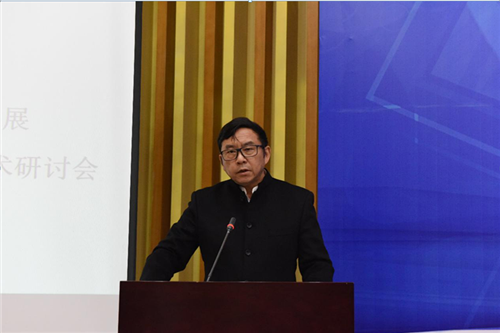
The opening ceremony was presided over by Professor Li Jianfei from of Renmin Law School. Professor Li Jianfei pointed out that this symposium not only paid attention to the theoretical front issues of hot topics but also focused on the complicated issues of practical difficulties and the tradition of close cross-strait labor law scholarship, which is very important for advancing the development of cross-Strait labor law .And he introduced the important guests to attend the meeting one by one.
At the opening ceremony, the speech was made by former inspector Yu Mingqin of the Law Department of Human Resources and Social Security. In his speech, Yu Mingqin pointed out that it is of great significance to discuss the challenge to the construction of the legal system for labor under the guidance of the just-enacted 19th National Congress of the Communist Party of China in the new era. Combining the current economic situation in our country, Mainly faces six major new challenges: to adapt to the challenge of new labor relations to identify labor relations, to adapt to the challenges of labor market flexibility, artificial intelligence challenges, to meet the challenges of mobility of employees to meet the challenges of human resource outsourcing and the establishment of a new mechanism for labor relations The challenges and how to deal with these challenges were analyzed.
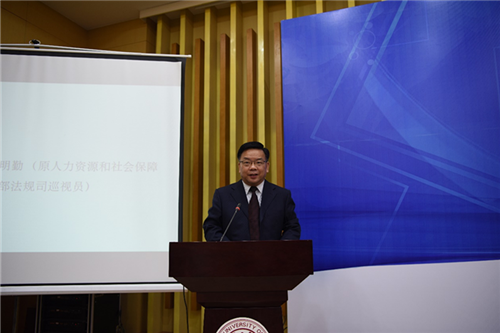
Lin Jiahe, chairman of the Taiwanese Labor Law Association and law school at Politics University, expressed his thanks for being invited to attend the seminar. He said that such cross-Strait exchange of labor law scholars is of great significance to the further deepening of labor law research. According to Prof. Lin Jiahe, labor law is deeply influenced by politics, economy, society, culture and national consciousness. In the face of social environment and world structure, which are undergoing tremendous changes, labor law is one of the most sticking to the original normative structure.
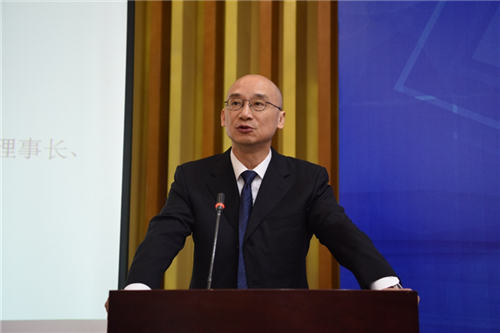
Judge Gu Zhengzheng, Vice President of Intermediate People,s Court of Wuxi City, Jiangsu Province, said in his speech that Wuxi Intermediate People,s Court of Jiangsu Province set up the first labor dispute court in Jiangsu Province in 2008 and accepted a large number of labor dispute cases each year. This seminar is an important opportunity for practitioners to participate in academic discussions. The practitioners can timely hear the views of academic circles on cutting-edge issues such as the impact of the scientific revolution on labor law. They can effectively communicate with academics and can help solve practical issues Faced with the lack of theoretical guidance on the issue of labor law.
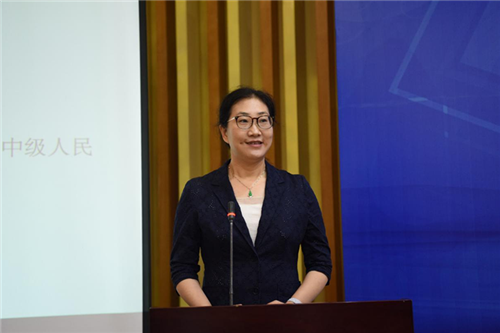
Professor Lin Jia, party secretary of the Law School of Renmin University of China and director of the Social Law Research Center, extended warm welcome and sincere thanks to more than 80 labor law scholars and substantive experts from both sides of the Taiwan Strait. Finally, Professor Lin Jia expressed his sincere gratitude to the co-organizers of the conference, Suzhou Campus of Renmin University of China, I Institute of Future Rule of Law of Law School of Renmin University of China and Jiangsu Milai Law Offices for their assistance to the meeting.
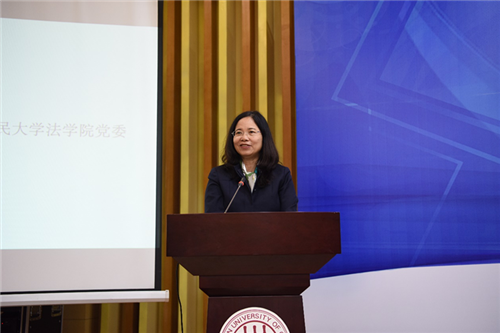
After the opening ceremony, the conference entered the first session, "The Impact of the New Technological Revolution on Labor Law," which was given by Professor Qiu Junyan from the Faculty of Law of the Cultural University and gave a keynote speech entitled "Age of Networking and Employment Diversification" Professor Qiu Junyan first proposed a proposition - as the times change, whether the relationship between labor and management is the same or not?
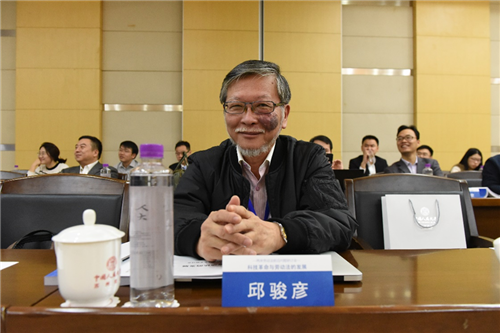
Prof. Wang Quanxing from Shanghai University of Finance and Economics launched a report titled "Internet + Revolutionary Challenge to Labor Law Theory?". The report introduced such as employment flexibility may lead to a decline in the quality of employment, corporate training to reduce personnel motivation due to the rise of platform economy caused a series of problems.
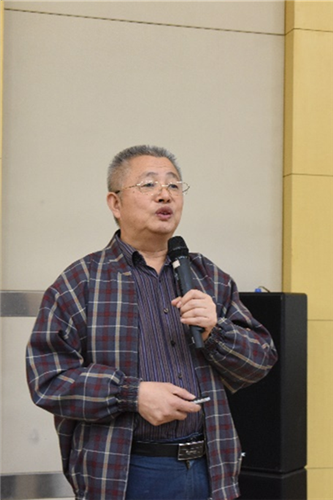
Lin Jiahe, professor from Cultural University, introduced the new changes in labor relations under "Industry 4.0" entitled "Labor 4.0" and "Labor World" in the title of "From Labor Elasticity to Labor 4.0 - Observation of a Development Trend" began to show "digital" phenomenon.
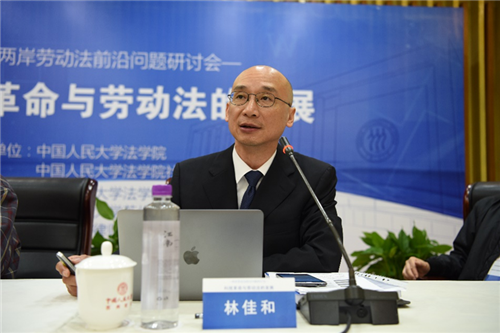
Professor Lin Jia of Law School of Renmin University of China, titled "The Impact and Response of Science and Technology Revolution to Labor Law", combs the relationship between science and technology revolution and labor law evolution in detail and points out the influence of the fourth scientific and technological revolution on labor law. The biggest feature is the shift from mere technical problems in the past to ethical challenges.
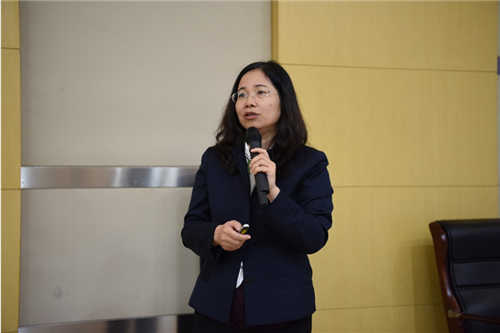
The second session of the conference is the impact of the new scientific and technological revolution on labor law, chaired by Professor Qin Guorong of Nanjing Audit University Law School. This unit adopts the form of "roundtable discussion". Professor Qiu Junyan and Professor Lin Jiahe, as well as Professor Dong Baohua from East China Normal University School of Law, Professor Feng Yanjun from Jilin University School of Law, Professor Zheng Shangyuan from Tsinghua University School of Law and Professor Li Jianfei from Renmin Law School discussed in a free speech the possible impact of the scientific revolution on labor law.
On the afternoon of October 28, the conference entered the second session, the impact of industrial intelligence on the labor market and labor relations, chaired by Professor Jiang Ying of China Institute of Labor Law.
Professor Zheng Jinjin of Zhong Zheng University Law School titled "The Impact of Industry 4.0 on Labor Environment and Labor Law", first introduced the impact of Industry 4.0 on the labor environment and then explained the possible impact on labor law.
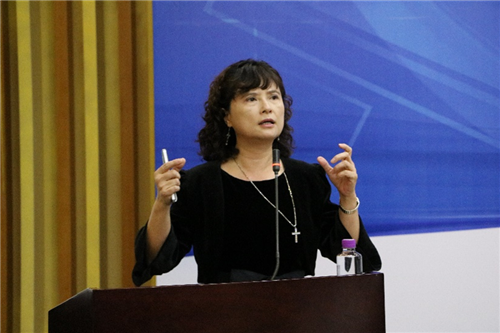
Associate Professor Hou Lingling of Shenzhen University School of Law, entitled "The Impact of Smart Robot on Labor Law", thinks that the large-scale application of intelligent robots may lead to the weakening or even disappearance of the role of labor law, thus triggering the prohibition of abuse of robots should be included in labor law category and how to deal with the challenges of labor law.
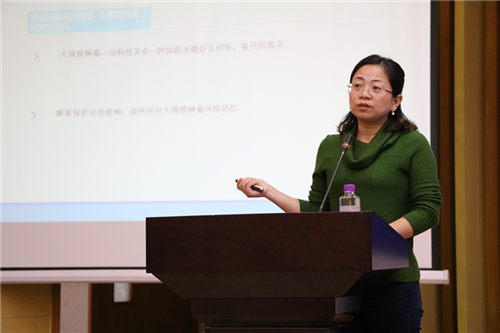
Wu Jinyu, an associate professor at Law School of Zhejiang Gongshang University, combined with his own practical experience in team research, introduced the problems of labor law and labor relations between robots and machines, and concluded that capital problems and technologies related to the use of technology in labor relations should be distinguished.
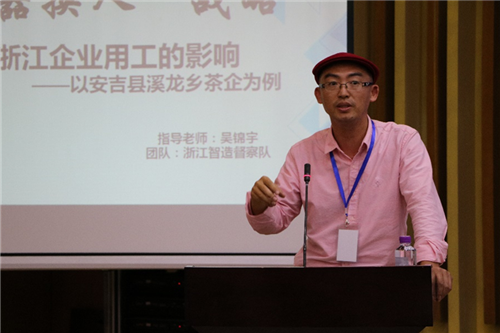
After the topic report, Prof. Zhao Hongmei from Civil and Commercial Economic Law School of China University of Political Science and Law, Prof. Zhou Xianri from South China Normal University Law School, Prof. Qian Yefang from Zhejiang University of Finance and Economics, and Associate Professor Li Haiming from School of Law of Central University of Finance and Economics participated in this module.
The theme of the third session of the conference is "Recognition of Labor Relations under the Internet Platform", chaired by Professor Li Kungang, School of Law, Anhui University.
On the morning of October 29, the conference entered the fourth session, "New Issues in the Protection of Workers, Rights in the Scientific and Technological Revolution (First Part)." This unit is chaired by Professor Zhai Yujuan, School of Law, Shenzhen University. The Second part was chaired by Professor Cao Yan from Northeast Law School.
The summary session of the meeting was presided by Associate Professor Lu Haina from Renmin Law School. Associate Professor Lu Haina looked forward to the reexamination of the possible concept of human rights and rights by science and technology development. The issue of the influence on disadvantaged groups and the challenge to the dominant position of human beings needed the response of academic research.
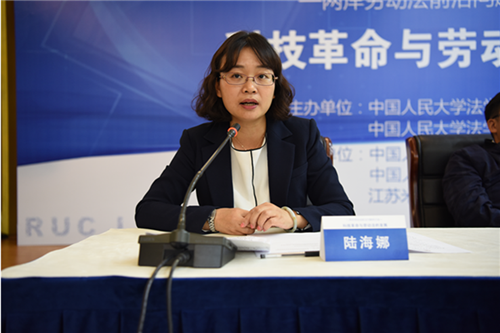
Finally, in the warm applause of distinguished guests, the "Scientific and Technological Revolution and the Development of Labor Law - A Symposium on the Frontiers of Labor Laws across the Taiwan Strait" came to a successful conclusion.
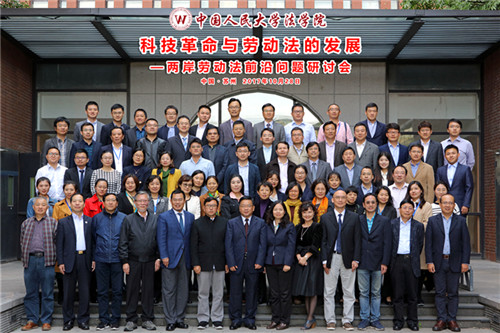
(Editor: ZHAN Hefei)

